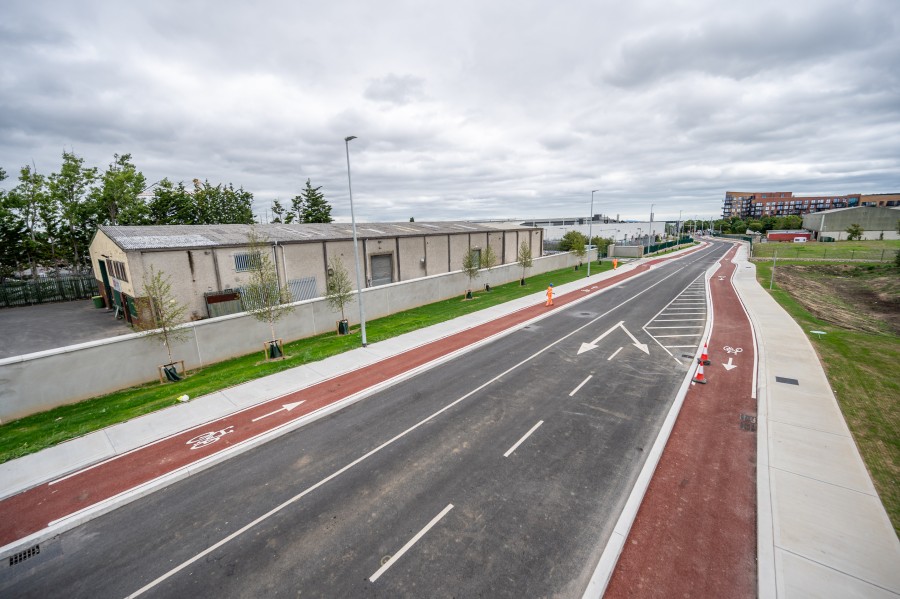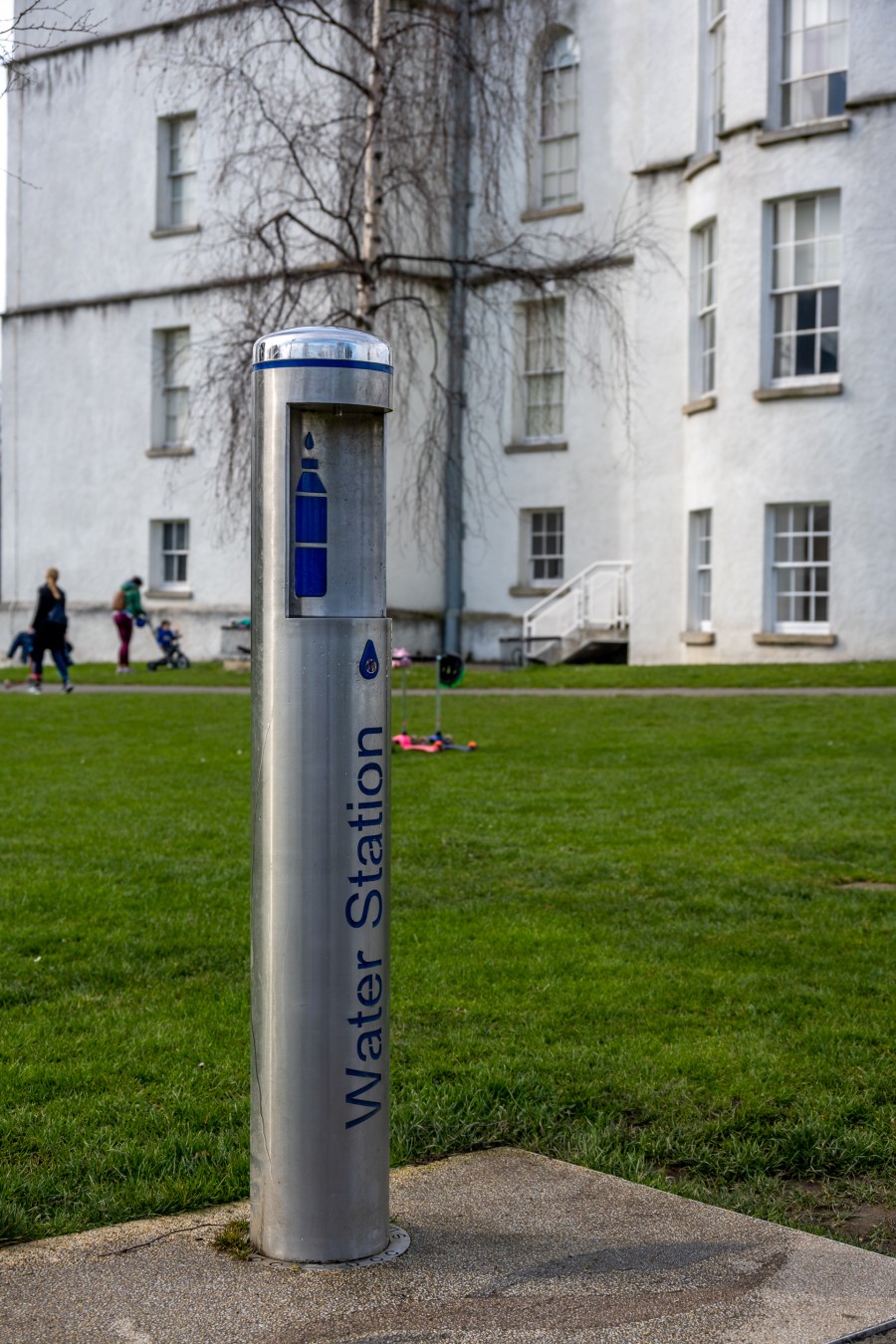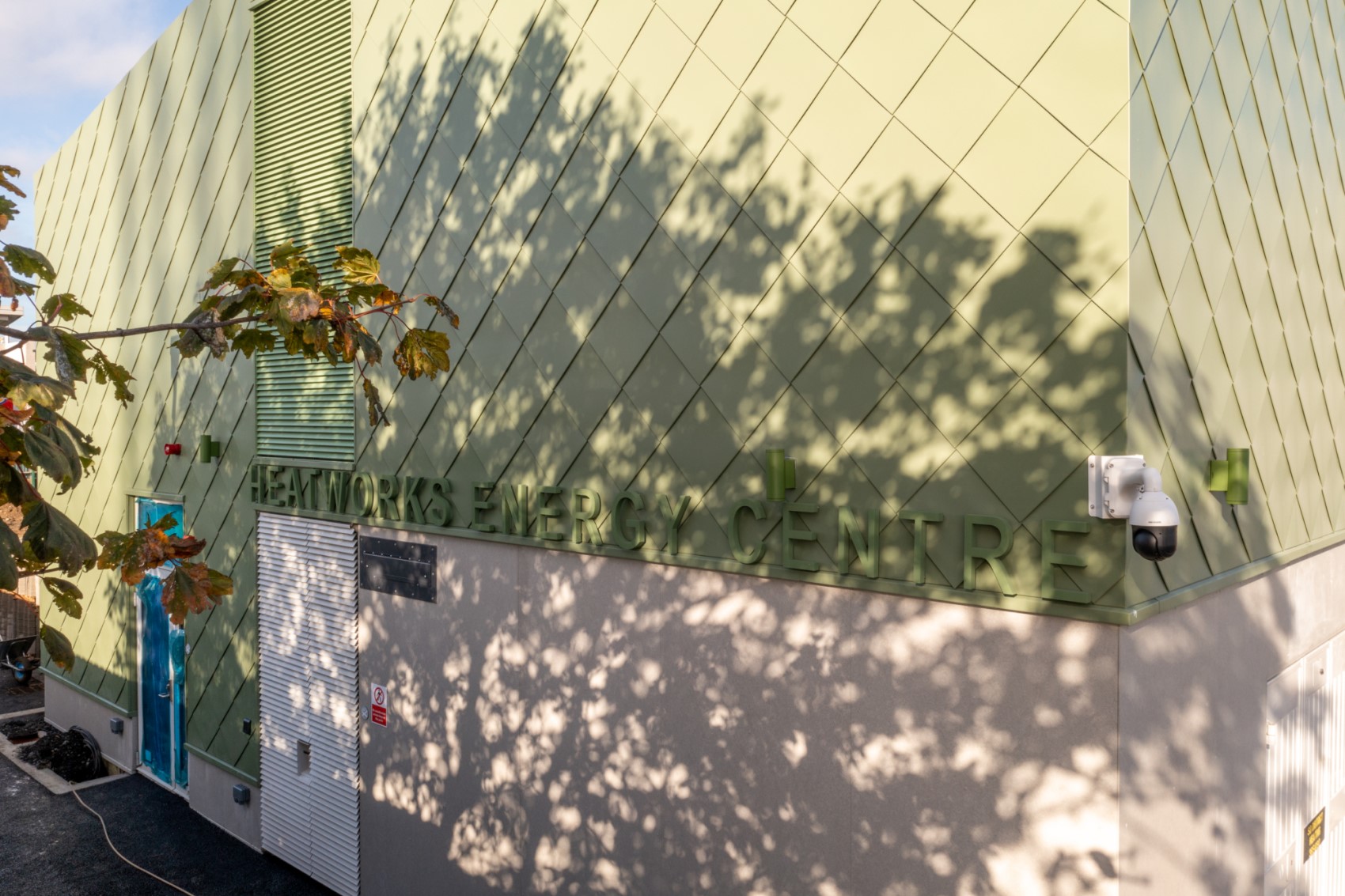Bringing Circular Economy into What We Do
The circular economy will see Ireland adopt a more sustainable economic system where we use less raw materials, design products to be kept in use for longer, and reuse and repair them. The challenge is significant with 100 million tonnes of material used in the Irish economy every year. However, there are opportunities and SDCC are keen to bring circular economy principles into everything we do.
You can learn more about our climate actions on our dedicated storymap, such as Rosemount District Enhancement, how we are reducing waste in County Hall, and an innovative paint recycling initiative, or read below for additional actions.
Reducing Construction Waste
SDCC endeavours to minimise the use of virgin materials in road projects. In undertaking works on road substructures, reuse of original concrete is used where possible. In the Airton Road Extension scheme, the materials from the demolition of a warehouse within the site were then used in the construction of the road. This resulted in a carbon saving estimated at 9,000kg (9 Tonnes). Concrete specs for road construction have also been altered, with an expected carbon reduction of 32%. Asphalt specs are also being altered to warm mixes.

Fig 1: Airton Road Extension
Anaerobic Digestion Feasibility Study
SDCC manages over 1,500 hectares of parks and open spaces, including 210 hectares of pollinator friendly meadows that produce nearly 3,000 tonnes of meadow grass per annum. Currently there is a contract in place to cut and collect meadow grass, which is then used as fodder by the contractor.
As part of exploring alternative ways to manage the grass cuttings, SDCC conducted a feasibility study on using anaerobic digestion (AD) to produce biogas. The study explored whether a small-scale AD plant could fuel the Council's fleet. While the process was found to be technically feasible, it was deemed financially unviable compared to other renewable fuel options like Hydrotreated Vegetable Oil (HVO). The findings were presented to the Environment, Public Realm, and Climate Change SPC in February 2025.
Drinking Water Fountains
In 2024, SDCC continued the roll out of public drinking water fountains at key locations across the county. The main aim of these public fountains is to promote health and wellbeing, promote active travel options in the county, instill a philosophy of sustainable living with minimal reliance on single-use packaging and to encourage the use of reusable bottles over single use plastics. Thirty water fountains have been installed in the Public Realm, by the end of 2024. Over the year 96,867 plastic bottles were saved from going to landfill through use of drining water fountains.

Fig 2: Water Fountain in Rathfarnham Park
"Losing The Thread: The Cost of Fast Fashion"
"Losing The Thread: The Cost of Fast Fashion" was launched in October of 2025 and is a collaboration between the four Dublin Local Authorities. The film takes an honest look at Dublin’s (and Ireland’s) Fast Fashion problem. It examines the environmental impact, the ethical dilemmas and shares the opinions of shoppers on Dublin’s shop streets. It ultimately ends with an inspiring turn, showcasing positive and practical steps we can take, featuring expert opinions from Ireland’s burgeoning circular economy space.
Key Circular Economy Data


